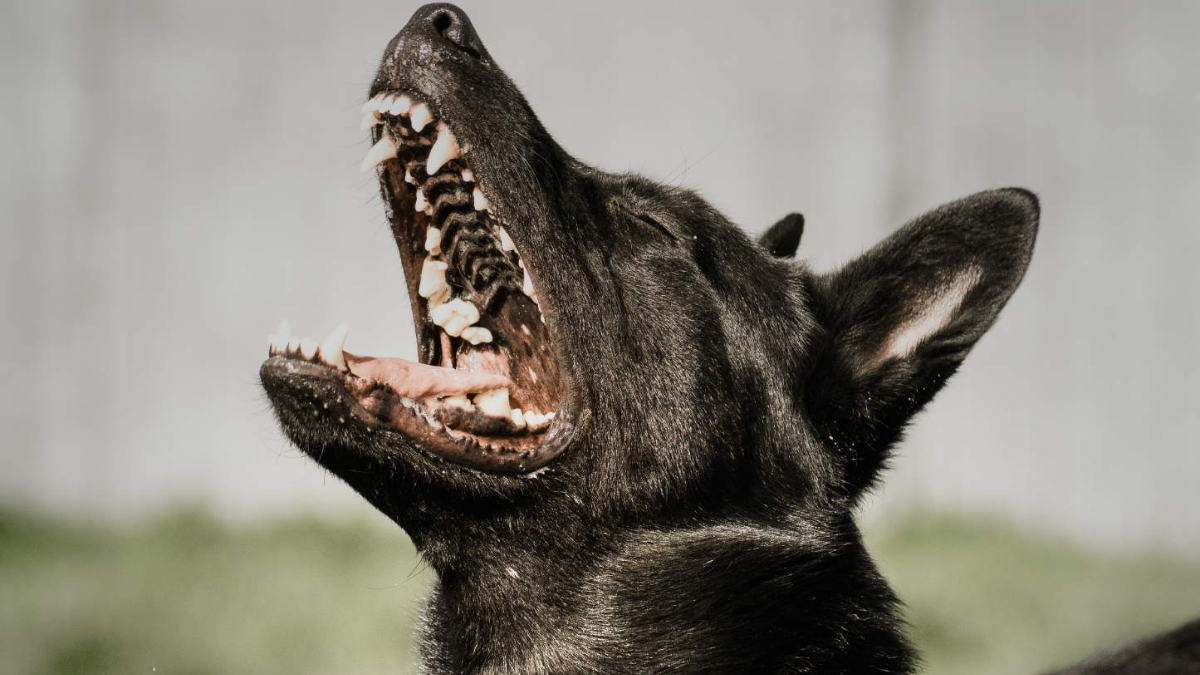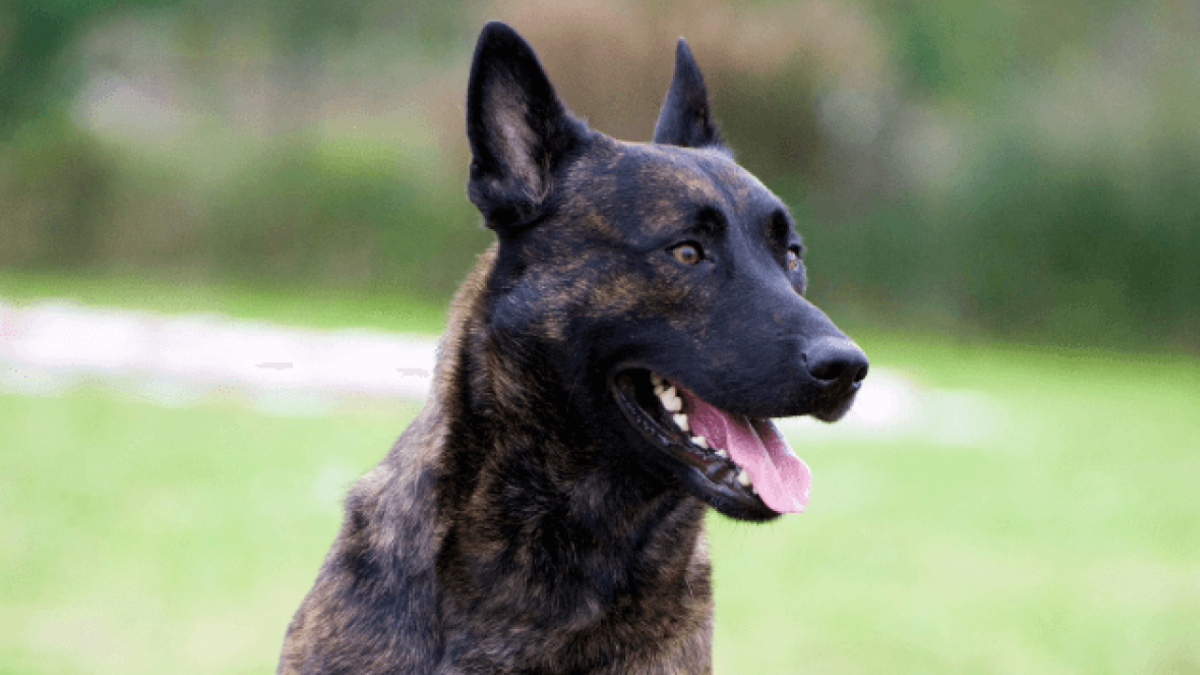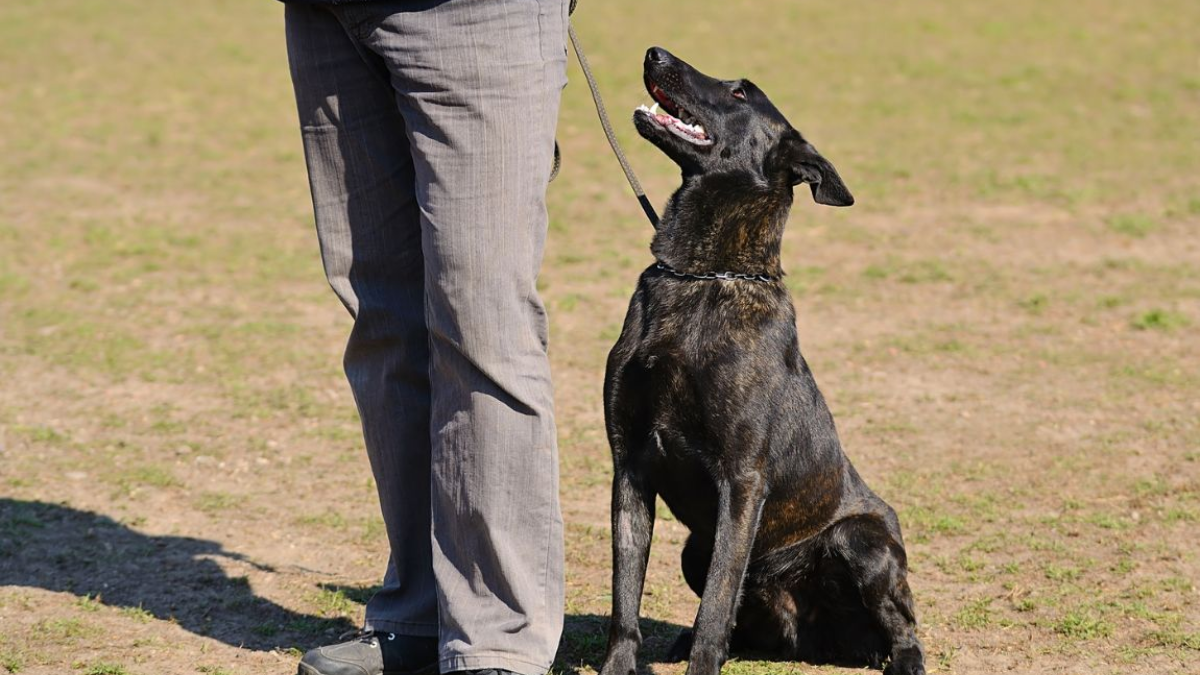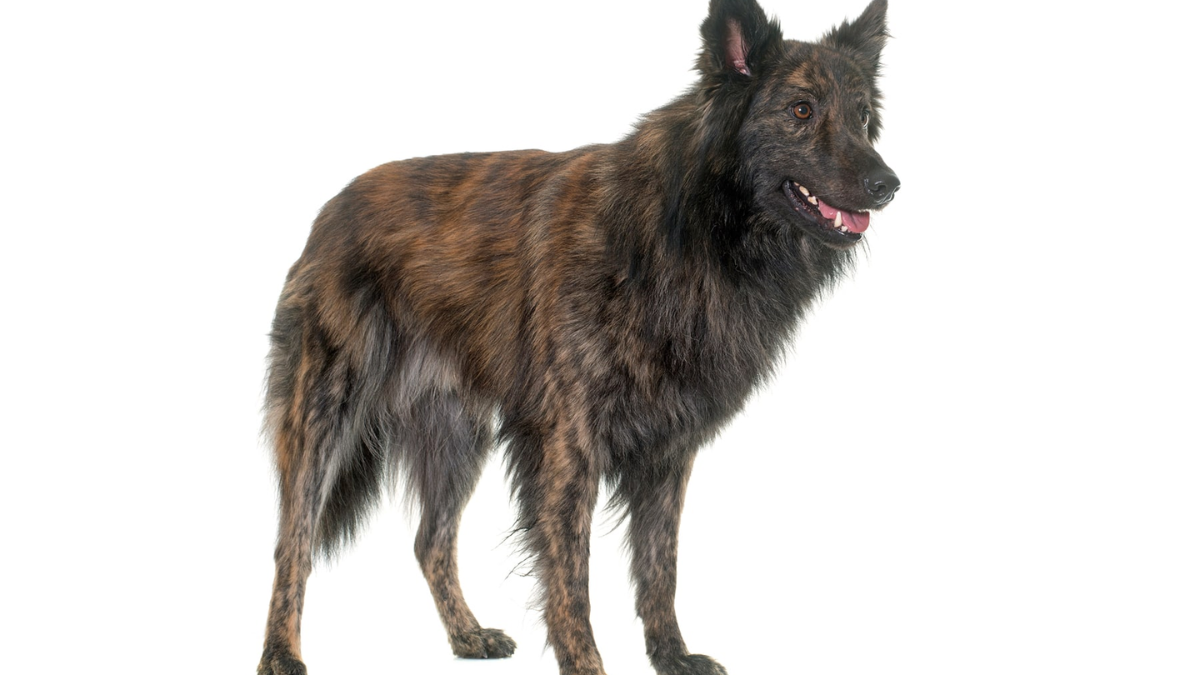The Dutch Shepherd dog is a rare breed that originated in the Netherlands. These dogs are known for their intelligence, loyalty, and versatility, making them popular among law enforcement agencies and families alike. However, Dutch Shepherd Dog Teeth: are one aspect of their physical appearance that is often overlooked.
Dutch Shepherds have strong, powerful jaws and sharp, pointed teeth. These teeth are essential for their work as guard dogs and herders, as they must be able to grip and hold onto prey or intruders. However, their teeth also require proper care and maintenance to ensure they remain healthy and functional.

In this article, we will take a closer look at the teeth of the Dutch Shepherd dog. We will explore their anatomy, discuss common dental issues that can affect these dogs, and provide tips for keeping their teeth clean and healthy. Whether you are a Dutch Shepherd owner or simply interested in learning more about this unique breed, this article will provide valuable insights into the dental health of these remarkable dogs.
Breed Overview
History and Origin
The Dutch Shepherd is a medium-sized herding dog that originated in the Netherlands. This breed was developed during the early 1800s to assist farmers in herding sheep and other livestock. The Dutch Shepherd is closely related to other herding breeds such as the German Shepherd and Belgian Shepherd.
Characteristics
The Dutch Shepherd is a highly intelligent and energetic breed that requires plenty of physical and mental stimulation. These dogs have a brindle coat that can be either short, long, or wire-haired. They are known for their athleticism, agility, and endurance, making them excellent working dogs. Dutch Shepherds are also loyal and protective of their families, making them great companions.
Breed Recognition
The Dutch Shepherd is recognized by the American Kennel Club (AKC) as a herding breed. However, they are not yet recognized by the AKC as a separate breed, but rather as a variety of the Belgian Shepherd. Despite this, the Dutch Shepherd has gained popularity in recent years due to their exceptional working abilities and loyal temperament.

In conclusion, the Dutch Shepherd is a highly versatile and intelligent breed that excels in herding and other working activities. They have a rich history and origin in the Netherlands and are closely related to other herding breeds such as the German and Belgian Shepherd. Despite not yet being recognized as a separate breed by the AKC, the Dutch Shepherd has gained a loyal following due to their exceptional abilities and loyal temperament.
Physical Attributes
Size and Weight
Dutch Shepherds are medium-sized dogs with a muscular build and a square-shaped body. They typically weigh between 50 to 75 pounds and stand 22 to 24 inches tall at the shoulder. Males are slightly larger than females, but both genders are equally agile and athletic.
Coat and Color
The Dutch Shepherd's coat is short, dense, and weather-resistant. It comes in three distinct colors: brindle, fawn, and silver. Brindle is the most common color and can range from light to dark. Fawn can be a golden or reddish color, while silver is a dilute black with a bluish-gray tint. Some Dutch Shepherds may also have black markings on their face and legs.
Ears and Tail
The Dutch Shepherd's ears are erect and pointed, giving them an alert and attentive expression. Their tail is long and tapered, reaching down to their hocks. When relaxed, their tail hangs down, but when they are alert or excited, their tail will be held high and may curl slightly.

Overall, the Dutch Shepherd's physical attributes make them an excellent working dog. They are strong, agile, and have a keen sense of smell, making them ideal for tasks such as search and rescue, police work, and herding. Their short, dense coat is easy to maintain and protects from the elements. Their erect ears and tapered tails give them a distinctive appearance that sets them apart from other breeds.
Temperament and Behavior
Personality
Dutch Shepherds are known for their intelligent and loyal personalities. They are friendly and affectionate with their families but can be reserved with strangers. They are independent thinkers and require a confident and consistent owner to establish themselves as the pack leader.
Family and Social Life
Dutch Shepherds make great family pets for active households. They thrive in environments where they can participate in family activities and have plenty of opportunities for exercise. They are good with children but should be supervised around younger kids due to their high energy levels.
Working Dog Traits
As a working dog breed, Dutch Shepherds possess strong guard dogs and police work traits. They are alert and protective of their families and properties. Their high energy levels and intelligence make them excellent candidates for agility and obedience competitions.
In summary, Dutch Shepherds are intelligent, loyal, and active dogs that make great family pets and working dogs. They require an experienced owner who can provide them with plenty of exercise and training to keep them happy and healthy.
Health and Wellness
Common Health Issues
Like all breeds, Dutch Shepherd dogs are prone to certain health issues. One of the most common health problems they may face is hip dysplasia, a condition that affects the hip joint and can cause pain and discomfort. Another common issue is elbow dysplasia, which affects the elbow joint and can lead to arthritis. Regular visits to the vet can help detect these problems early on and prevent them from getting worse.

Diet and Nutrition
Maintaining a healthy diet is important for the overall health and wellness of a Dutch Shepherd dog. A balanced diet that includes protein, carbohydrates, and healthy fats can help keep their energy levels up and promote a long lifespan. It is recommended to feed them high-quality dog food that is appropriate for their age and activity level. Owners should also avoid overfeeding their dogs and giving them too many treats, as this can lead to obesity and other health problems.
Exercise Needs
Dutch Shepherd dogs are known for their high energy levels and require plenty of exercise to stay healthy and happy. Regular exercise can help prevent obesity and other health issues, as well as provide mental stimulation. Owners should provide daily exercise that includes both physical activity and mental stimulation, such as playing fetch or going for walks in new environments. It is important to note that excessive exercise or high-impact activities can lead to joint problems, so it is important to provide appropriate exercise based on the dog's age and physical condition.
In summary, maintaining the health and wellness of a Dutch Shepherd dog requires a balanced diet, regular exercise, and routine visits to the vet. By taking care of their physical and mental needs, owners can help ensure their dog lives a long and healthy life.
Training and Intelligence
Training Techniques
Dutch Shepherds are highly trainable and intelligent dogs that respond well to positive reinforcement techniques. These dogs are eager to please their owners and are known for their obedience. It is recommended to start training your Dutch Shepherd from a young age to ensure they develop good habits and behaviors.
One of the most effective training techniques for Dutch Shepherds is positive reinforcement. This involves rewarding your dog for good behavior, rather than punishing them for bad behavior. Rewards can include treats, toys, or praise, and should be given immediately after the desired behavior is displayed.
Mental Stimulation
Dutch Shepherds are highly intelligent dogs that require mental stimulation to prevent boredom and destructive behavior. Mental stimulation can be provided through activities such as puzzle toys, training exercises, and interactive play.
Training exercises can include obedience training, agility training, and scent work. These activities not only provide mental stimulation but also help to strengthen the bond between owner and dog.
Training Challenges
While Dutch Shepherds are highly trainable, they can present some challenges during training. These dogs are known for their high energy levels and can become easily distracted if not properly exercised.

It is important to provide your Dutch Shepherd with plenty of exercise before training sessions to help them focus. Additionally, it is important to remain patient and consistent during training, as these dogs can become stubborn if they feel they are not being treated fairly.
In summary, Dutch Shepherds are highly intelligent and trainable dogs that require mental stimulation and positive reinforcement techniques. With patience and consistency, these dogs can excel in obedience training and other activities.
Grooming and Care
Shedding and Brushing
Dutch Shepherds are moderate shedders and require regular brushing to keep their coats healthy and shiny. Brushing also helps to remove loose hair and prevent matting. A slicker brush or a shedding blade can be used to remove loose hair and dirt from the coat. It is recommended to brush the dog at least once a week, and more frequently during shedding season.
Teeth and Nail Care
Maintaining good dental hygiene is important for the overall health of a Dutch Shepherd. Regular brushing with a dog-specific toothpaste and toothbrush can help prevent dental issues such as tartar buildup and gum disease. Nails should also be trimmed regularly to prevent overgrowth and discomfort. It is important to be careful when trimming the nails, as cutting the quick can cause bleeding and pain.
Bathing and Maintenance
Dutch Shepherds do not require frequent bathing, as it can strip their coat of natural oils and cause dryness. Bathing once every three months or as needed is sufficient. It is important to use a dog-specific shampoo and conditioner and to rinse thoroughly to avoid any residue. Maintenance also includes regular ear cleaning to prevent infections and checking for any signs of skin irritation or health issues.

Living with a Dutch Shepherd
Dutch Shepherds are known for their active and energetic nature. They make great family pets for those who lead an active lifestyle. In this section, we will discuss the home environment that is best suited for a Dutch Shepherd, the activities and sports that they enjoy, and some tips for adopting or buying a Dutch Shepherd.
Home Environment
Dutch Shepherds are highly active and require a lot of exercise. They do well in homes with large yards where they can run and play. They also enjoy going on long walks and hikes. Dutch Shepherds are loyal and protective, making them great watchdogs, but they also love to be around their family.
Activities and Sports
Dutch Shepherds excel in dog sports such as agility, obedience, and herding. They are also great at tracking and search and rescue. These activities provide mental and physical stimulation for the dog, making them happy and healthy.
Adoption and Buying Tips
If you are interested in adopting a Dutch Shepherd, it is important to find a reputable breeder or rescue organization. Make sure to ask about the dog's temperament and health history. Dutch Shepherds are a rare breed, so it may take some time to find the right one. When buying from a breeder, make sure they are registered with a reputable organization and have all necessary health clearances.
In conclusion, Dutch Shepherds are active and athletic dogs that make great family pets for those who lead an active lifestyle. They require a lot of exercise and mental stimulation, but in return, they are loyal and protective companions.

Conclusion:
In conclusion, understanding the importance of Dutch Shepherd Dog Teeth is crucial for maintaining their overall health and well-being. As a breed known for their intelligence, loyalty, and versatility, Dutch Shepherds often engage in various activities that require strong and durable teeth. Whether serving in law enforcement, search and rescue or simply as cherished family companions, healthy teeth are essential for their performance and quality of life.
Regular dental care, including brushing and professional cleanings, can help prevent dental issues and ensure optimal dental health for Dutch Shepherds. Additionally, providing appropriate chew toys and dental treats can help promote dental hygiene and keep their teeth strong.
By prioritizing dental care and being mindful of their dental health, Dutch Shepherd owners can contribute to their pet's overall happiness and longevity. Remember, healthy teeth mean a happier and healthier Dutch Shepherd, ready to excel in any task or adventure that comes their way.
Frequently Asked Questions
- What is the typical size of Dutch Shepherd dog teeth?
- Dutch Shepherd dog teeth are typically medium-sized and strong. They are designed to help the dog chew and tear through meat and bones. The size of the teeth can vary slightly depending on the age, sex, and overall size of the dog.
- How can I determine if my dog is a purebred Dutch Shepherd?
- To determine if your dog is a purebred Dutch Shepherd, you can look for certain physical characteristics such as a muscular build, pointed ears, and a short, dense coat. You can also check for documentation from a reputable breeder or a DNA test.
- What are common health issues in Dutch Shepherds?
- Like all dog breeds, Dutch Shepherds can be prone to certain health issues such as hip dysplasia, elbow dysplasia, and eye problems. It is important to have regular check-ups with a veterinarian and to keep up with preventative care such as vaccinations and parasite control.
- At what age is a Dutch Shepherd considered fully grown?
- Dutch Shepherds are considered fully grown at around 18-24 months of age. However, their energy levels and behavior may continue to change and develop throughout their life.
- What is the average lifespan of a Dutch Shepherd?
- The average lifespan of a Dutch Shepherd is around 11-14 years. However, this can vary depending on factors such as genetics, diet, exercise, and overall health.
- How does the intelligence of a Dutch Shepherd compare to other breeds?
- Dutch Shepherds are known for their high intelligence and trainability. They are often used in law enforcement and search and rescue work due to their ability to learn quickly and adapt to new situations. However, like all dogs, individual intelligence can vary and depends on factors such as genetics, training, and socialization.




